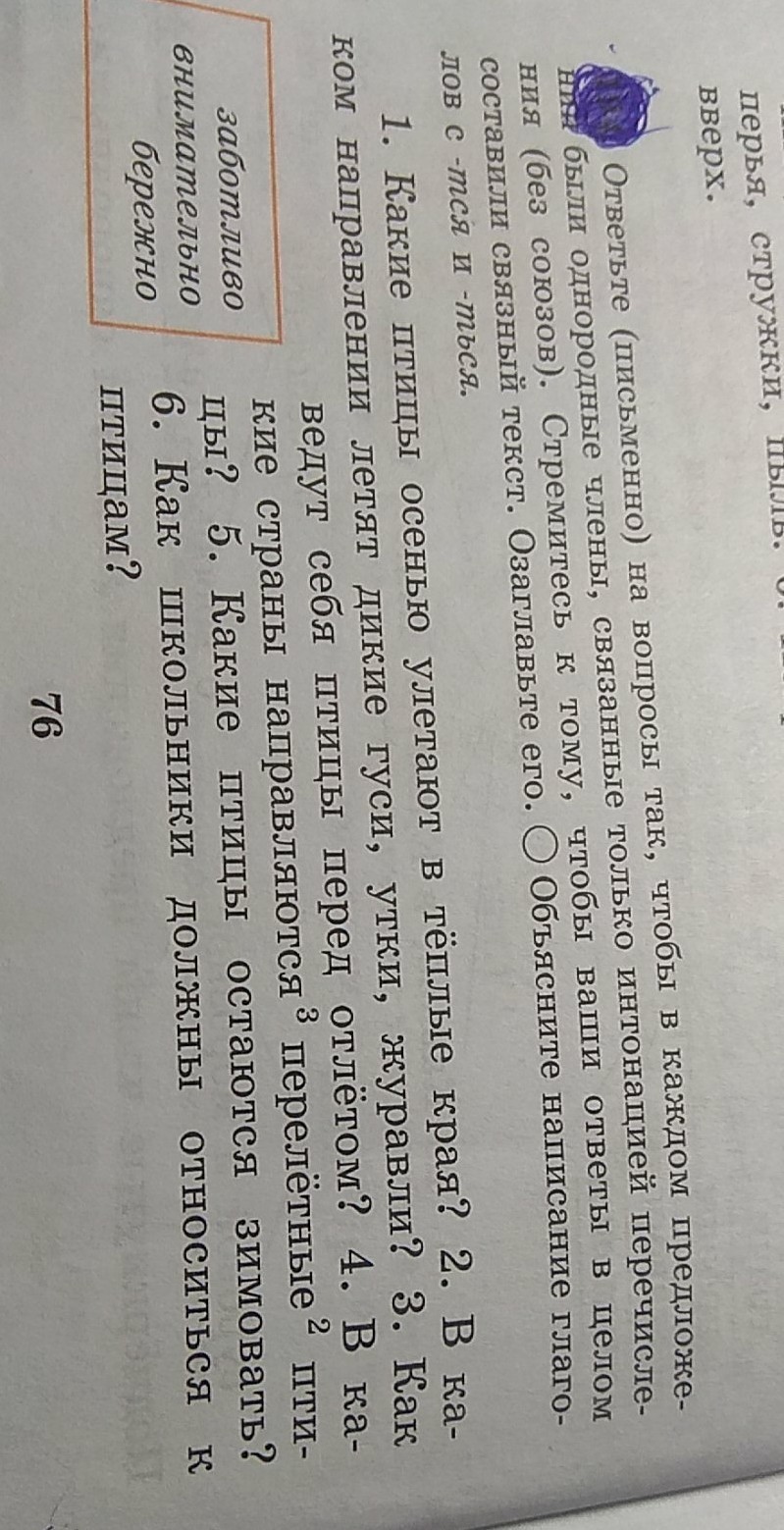Предмет: Русский язык,
автор: милашкаляляля
Пожалуйста срочно очень срочно!
Приложения:

Ответы
Автор ответа:
1
1. Ласточки, стрижи, соловьи, скворцы, грачи, гуси, утки, лебеди,жаворонки, журавли и т.д.
2. На юг
3. Перед отлетом они волнуются, кричат, суетятся.
4. Перелетные птицы направляются в теплые страны.
5. Бережно и с уважением должны относиться. А также строить кормушки и скворечники.
2. На юг
3. Перед отлетом они волнуются, кричат, суетятся.
4. Перелетные птицы направляются в теплые страны.
5. Бережно и с уважением должны относиться. А также строить кормушки и скворечники.
Похожие вопросы
Предмет: Математика,
автор: peltiyv
Предмет: Русский язык,
автор: Edgarrrg
Предмет: Английский язык,
автор: Аноним
Предмет: Информатика,
автор: sherzodjon077
Предмет: Алгебра,
автор: ivankreativ